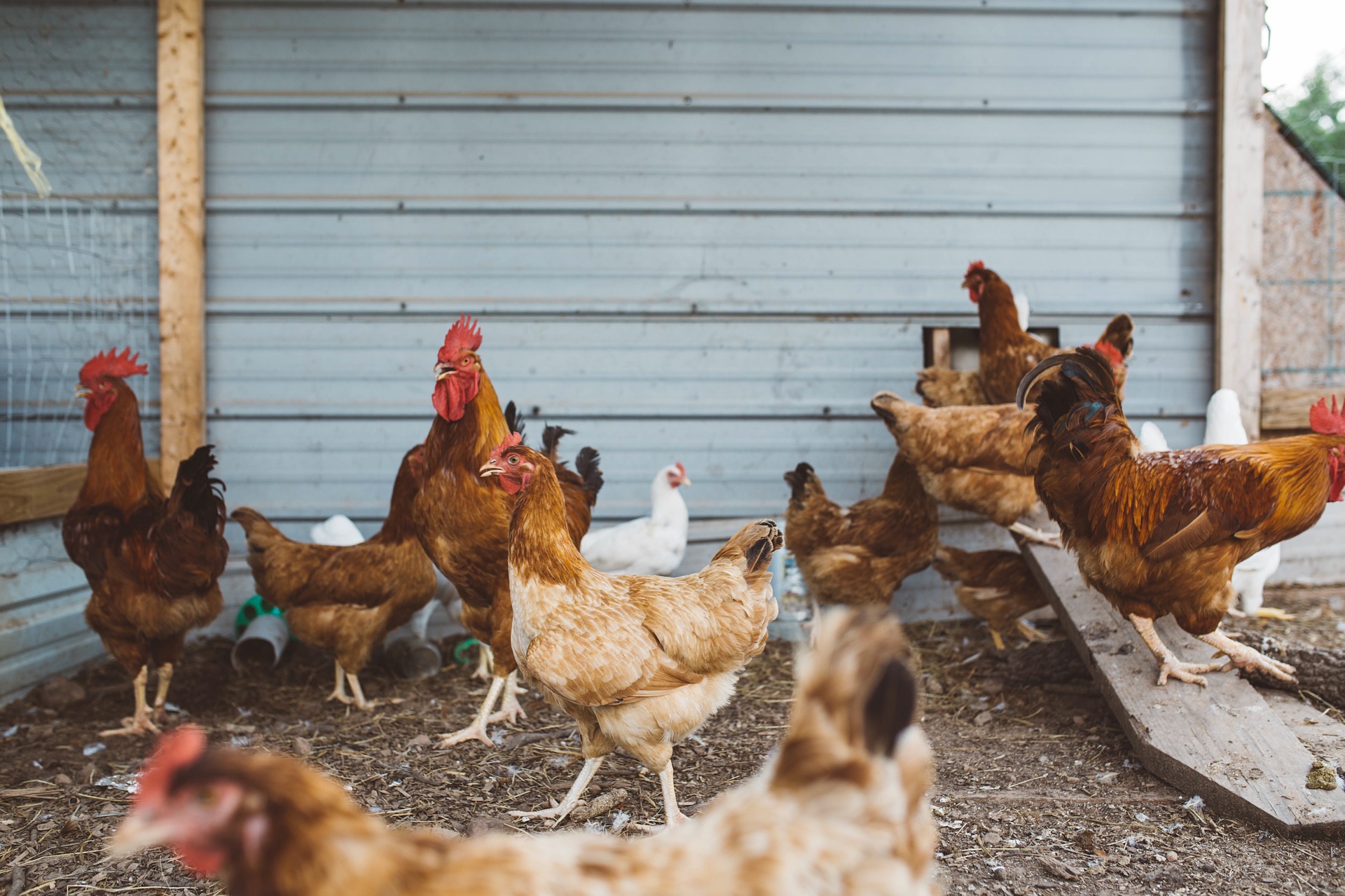Walk into any grocery store or market and you can spend $1 on a carton of eggs or over $4 on eggs! These protein packed little guys used to be considered one of the most economical sources of high-quality protein, but more choices and production practices mean wider range of cost. Cage-free, organic, brown, omega-3, pasteurized…while your grandparents had just 1 choice at their grocery store a couple of decades ago, you get to make a decision. But which ones are the best ones? Is there a certain type that is healthier for you? What is the difference and what do you need to know to make the best choice for your health?

Let’s begin with the basics… A typical large egg contains…
- 6 grams high-quality protein (all essential amino acids- building blocks for protein)
- 0 grams of sugar
- 0 grams of carbohydrate
- 126mg choline per egg yolk, a nutrient necessary for cell membranes and needed in larger quantities during pregnancy for infant memory development and function
- 41iu Vitamin D
- 185mg cholesterol
If you grab a regular carton of eggs, this is what you will get. But the lingo on the outside of the carton can get a bit confusing. Brands use trendy phrases to get your attention and imply a healthier product inside the shell, but is it really? Forget the cholesterol argument, research doesn’t substantiate that regular, moderate consumption will raise your blood cholesterol. The questions we need to ask now are whether the omega-3 or cage free eggs are superior to the regular ones? And, is all organic the way to go?
Let’s unveil exactly what these words mean so that you can decide if they are what you should buy on your next trip to the store!

Conventional Eggs
Cheap and readily available, these eggs were laid by hens usually housed in a very full hen house, often without seeing daylight. Although the hens may not be treated respectfully, the eggs are full of nutrients (see above) and the perfect protein source for breakfast, lunch, dinner or a snack.
Cage Free Eggs
These are eggs raised from chickens that are usually housed in an open barn. The chickens may still be very close together and have little space to roam, but they are not caged and are allowed perches and nest boxes to lay their eggs. Often pine shavings are spread over the floor.
Healthier than conventional? Likely not, but you are supporting farming practices that give the bird a better quality of life.
Free Range Eggs
These eggs come from chickens that are given the ability to roam free outside, sometimes under a shaded canopy. The time they spend outside is determined by the farm, but their ability to get more movement and fresh air is what makes these chickens unique. In addition to eating grains, these chickens forage for plants and insects for food.
Healthier than conventional? Probably not. In theory, this sounds good but there just isn’t clear evidence that these eggs are better for you. Essentially, by choosing to purchase free range, you are making a statement with your wallet…you are supporting farmers that are doing a better job at caring for the bird and creating conditions that are more similar to those from 100 years ago.

Organic Eggs
Chickens are provided organic (and non-GMO) feed and do not receive vaccines or antibiotics. These chickens are raised cage free or free range (read the label). Because these farmers cannot use vaccines or antibiotics, careful measures are taken to maintain the health of the chickens. In order for the feed to be certified USDA organic, the grain(s) must be grown on land that has been void of pesticides and toxic chemicals for at least 3 years.
Healthier than conventional? Maybe? This study comparing organic, conventional and omega-3 enriched eggs shows that organic had slightly higher protein, potassium, and copper levels, while the conventional contained higher magnesium and iron and the omega-3 eggs contained higher manganese and calcium. Essentially, change the feed and the nutrition of the eggs change as well, but it doesn’t necessarily make organic eggs better, just different in the amount of nutrients they supply the body.
Pasture Raised Eggs
These birds are allowed to roam free on maintained pasture land and are able to eat the plants and bugs available to them. The USDA does not regulate this definition and therefore, no standards are established.
Healthier than conventional? Unknown. There are no standards, therefore research and recommendations could be faulty.

Vegetarian Eggs
The chickens are provided a solely vegetarian diet, void of any meat or fish byproducts. Hens are kept indoors and are not allowed to peck at any worms or bugs on the ground.
Healthier than conventional? This guarantees there are no animal byproducts or questionable ingredients in the hen feed. This would be important to someone following a Vegetarian diet. There is not clear evidence that these eggs are healthier for you.
Pasteurized Eggs
These eggs have been heated to 140 degrees for 3 ½ minutes, which completely kills any bacteria without cooking the egg. These eggs are ideal for pregnant women, children and those with compromised immune systems as it significantly reduces the risk of foodborne illness from Salmonella. The chickens that lay these eggs do not necessarily follow any type of cage-free/free-range living conditions. Pasteurization occurs after eggs reach the plant.
Healthier than conventional? Nutritionally the same as conventional eggs, but likely safer with a lower risk of Salmonella foodborne illness.
Brown Eggs
These eggs are simply conventional eggs (unless otherwise noted on carton). The color is solely determined by the breed of hen that lays it. Brown eggs come from chickens with red feathers and red ear lobes.
Healthier than conventional? No nutritional differences.

Farmer’s Market Eggs
Each farmer determines how they raise the hens and what type of feed they receive. This is the perfect place to ask questions and inquire about practices. Eggs purchased at the farmer’s market may or may not be less expensive than store brands. However, for safety purposes, ensure that the farmer washed and refrigerated the eggs within 36 hours to reduce the risk of salmonella.
Healthier than conventional? This entirely depends on the feed, hen and farming practices. Talk with the farmer to learn about what they feed their hens and if they have had any nutrient analysis conducted on their eggs.
Omega-3 Eggs
The feed has been supplemented with a source of omega-3 fatty acids like flax seed (plant/vegetarian feed) or fish to increase the quantity of omega-3 fatty acids delivered by the egg. Nutrient analysis of the eggs will differ by brand so be sure to read the nutrition facts label! The hens may be raised conventionally or may be cage-free or free-roaming, but if the label does not imply a particular practice, expect conventional methods. According to the ODS and USDA Nutrient Database, a conventional egg has 30mg omega-3 fatty acids.
Healthier than conventional? Most common brands found in grocery stores supply 160-225mg omega-3 per egg. The IOM recommends 1.1-1.6g ALA (plant omega-3 fatty acid) daily. Other institutions recommend higher quality sources of omega-3 fats (DHA and EPA) because ALA is poorly converted into a usable source in the body. While fish like salmon, tuna and mackerel can supply substantially more quality omega-3 fats than omega-3 fortified eggs, this type of egg may be a good option for those that do not eat fish or other omega-3 plant sources like flaxseed, walnuts, and soybeans.
**The Academy of Nutrition and Dietetics recommends an average of 500mg EPA and DHA per day (not ALA).

So, what should you buy?
Conventional eggs are generally very safe and healthy to eat. Reasons for choosing cage free and free range eggs tend to be related to concerns about practices caring for the hens themselves, although, the health of the hen does appear to contribute to the nutrition of the egg. Salmonella outbreaks and egg recalls may be more prevalent among farms that use conventional methods to care for hens. However, completely cooking eggs and washing hands directly after touching almost completely removes risk for salmonella. Adults and children that do not eat a diet including fatty fish rich in omega-3 fatty acids and/or plant omega-3s should consider omega-3 fortified eggs to supplement their diet. Omega-3 fats are essential fatty acids the body needs and cannot produce on its own, making it necessary to include these in our diet.
According to this study, the type of hen, age, diet, quality of the range all affect egg properties. It also shares that omega-3 enriched eggs “seem to be of superior quality.”
If food cost or budget is important to you, conventional eggs may be the perfect choice for your family. There is no guilt buying conventional, nutrient dense eggs! Always know that you have a choice and you decide the what you consume and how much.
REFERENCES
Office of Dietary Supplements: Omega-3 Fatty Acids
Position of the Academy of Nutrition and Dietetics: Dietary Fatty Acids for Healthy Adults, Vannice, Gretchen et al. Journal of the Academy of Nutrition and Dietetics, Volume 114, Issue 1, 136 – 153
http://www.andjrnl.org/article/S2212-2672(13)01672-9/fulltext#sec7.2
M. Lordelo, E. Fernandes, R. J. B. Bessa, S. P. Alves; Quality of eggs from different laying hen production systems, from indigenous breeds and specialty eggs. Poult Sci 2016 pew409. doi: 10.3382/ps/pew409
